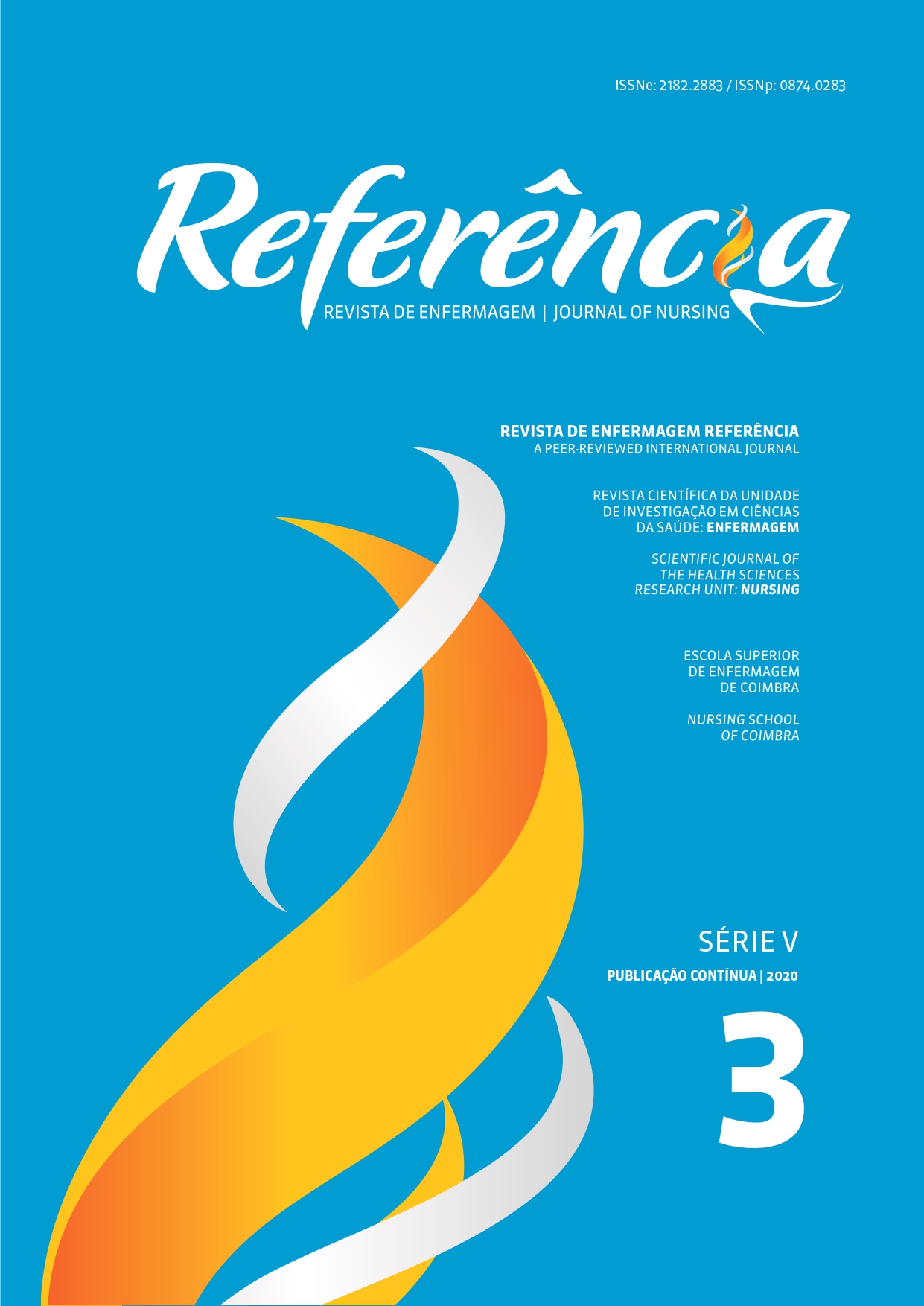Effectiveness of a training program for nurses’ emotional management of patient death
DOI:
https://doi.org/10.12707/RV20023Keywords:
nurses, death, training program, emotional adjustment, educationAbstract
Background: Death is a common reality in hospital settings, requiring nurses to adopt effective strategies for managing their emotions.
Objectives: To assess the effectiveness of a training program for nurses’ emotional management of patient death.
Methodology: A one-group pretest-posttest pre-experimental study was conducted in a sample of 20 nurses working in oncology inpatient units. Data were collected using a questionnaire consisting of the Portuguese versions of the Revised Death Attitude Profile (Escala de Avaliação do Perfil de Atitudes acerca da Morte - EAPAM) and the Coping with Death Scale (ECM), and the Program Implementation Assessment Scale (EAIP), applied at three different periods.
Results: The training program changed nurses’ attitudes in the dimensions of fear of death and neutral-acceptance (EAPAM). Significant differences were found in coping with one’s own death and the death of others (ECM), revealing improved skills in this area. The training program was rated as very good (EAIP).
Conclusion: The implementation of the training program proves to be an effective strategy for improving nurses’ emotional management of death.
Downloads
References
Ariès, P. (2011). Sobre a história da morte no Ocidente. Rio de Janeiro, Brasil: Editorial Teorema.
Becker, C., Wright, G., & Schmit, K. (2017). Perceptions of dying well and distressing death by acute care nurses. Applied Nursing Research, 33, 149-154. doi:10.1016/j.apnr.2016.11.006
Camarneiro, A., & Gomes, S. (2015). Tradução e validação da Escala de Coping com a Morte: Um estudo com enfermeiros. Revista de Enfermagem Referência, 4(7), 113-122. doi:10.12707/RIV14084
Campbell, D., & Stanley, J. (2005). Diseños experimentales y cuasi experimentales en la investigación social. Buenos Aires, Argentina: Amorrortu.
Carvalho, K., Lunardi, V. L., Silva, P. A., Vasques, T. C., & Amestoy, S. C. (2017). Educational process in palliative care and the thought reform. Investigación y Educación en Enfermería, 35(1), 17-25. doi:10.17533/udea.iee.v35n1a03
Finley, B., & Sheppard, K. (2017). Compassion fatigue: Exploring early-career oncology nurses’ experiences. Clinical Journal of Oncology Nursing, 21(3), E61-E66. doi:10.1188/17.CJON.E61-E66 .
Folkman, S. (1984). Personal control and stress and coping processes: A theoretical analysis. Journal of Personality and Social Psychology, 46(4), 839-852. doi: 10.1037//0022-3514.46.4.839.
Gómez-Díaz, M., Delgado-Gómez, M., & Gómez-Sánchez, R. (2017). Education, emotions and health: Emotional education in Nursing. Procedia: Social and Behavioral Sciences, 237, 492-498. doi:10.1016/j.sbspro.2017.02.095
Göriş, S., Tasci, S., Özkan, B., Ceyhan, O., Kartin, P. T., Çeliksoy, A. … Eser, B. (2017). Effect of terminal patient care training on the nurses’ attitudes toward death in an oncology hospital in Turkey. Journal of Cancer Education, 32(1), 65-71. doi:10.1007/s13187-015-0929-6
Jardim, J., & Pereira, A. (2006). Competências pessoais e sociais: Guia prático para a mudança positiva. Porto, Portugal: Edições ASA.
Limonero, J., Reverte, M., Gómez-Romero, M., & Gil-Moncayo, M. (2018). The role of emotions in palliative care. Palliative Medicine and Hospice Care, 4(1), 7-9. doi: 10.17140/PMHCOJ-4-127
Loureiro, L. (2010). Tradução e adaptação da versão revista da Escala de Avaliação do Perfil de Atitudes acerca da Morte (EAPAM). Revista de Enfermagem Referência, 3(1), 102-108. doi:10.12707/RII1012
Martins, M., Chaves, C., & Campos, S. (2014). Coping strategies of nurses in terminal ill. Procedia: Social and Behavioral Sciences, 113, 171-180. doi: 10.1016/j.sbspro.2014.01.024
Pais, N. (2019). Impacto de um programa de formação na gestão emocional dos enfermeiros perante a morte (Dissertação de mestrado). Escola Superior de Enfermagem de Coimbra, Portugal.
Santos Souza, M., Sousa, J., Lago, D., Borges, M., Ribeiro, L., & Guilhem, D. (2017). Avaliação do perfil de atitudes acerca da morte: Estudo com graduandos da área da saúde. Texto & Contexto Enfermagem, 26(4), e3640016. doi:10.1590/0104-07072017003640016.
Silva, R., Lage, I., & Macedo, E. (2018). Nurses’ experiences about death and dying in intensive care: A phenomenological reflection. Revista Portuguesa de Enfermagem de Saúde Mental, 20, 34-42. doi:10.19131/rpesm.0224
Sulzbacher, M., Reck, A., Stumm, E., & Hildebrandt, L. (2009). Nurses in Intensive Care Unit living and facing death and dying situations. Scientia Medica, 19(1), 11-16. Recuperado de http://revistaseletronicas.pucrs.br/ojs/index.php/scientiamedica/article/view/3873/7817
Tranter, S., Josland, E., & Turner, K. (2016). Nurses’ bereavement needs and attitudes towards patient death: A qualitative descriptive study of nurses in a dialysis unit. Journal of Renal Care, 42(2), 101-106. doi:10.1111/jorc.12147
Wong , P., Reker , G., & Gesser, G. (1994). Death Attitude Profile Revised: A Multidimensional Measure of Attitudes Toward Death. In R. A. Neimeyer (Eds.), Death Anxiety Handbook: Research, Instrumentation, and Application (pp. 121-148). Washington, USA: Taylor & Francis.
Zheng, R., Lee, S., & Bloomer, M. (2016). How new graduate nurses experience patient death: A systematic review and qualitative meta-synthesis. International Journal of Nursing Studies, 53, 320-330. doi: 10.1016/j.ijnurstu.2015.09.013






